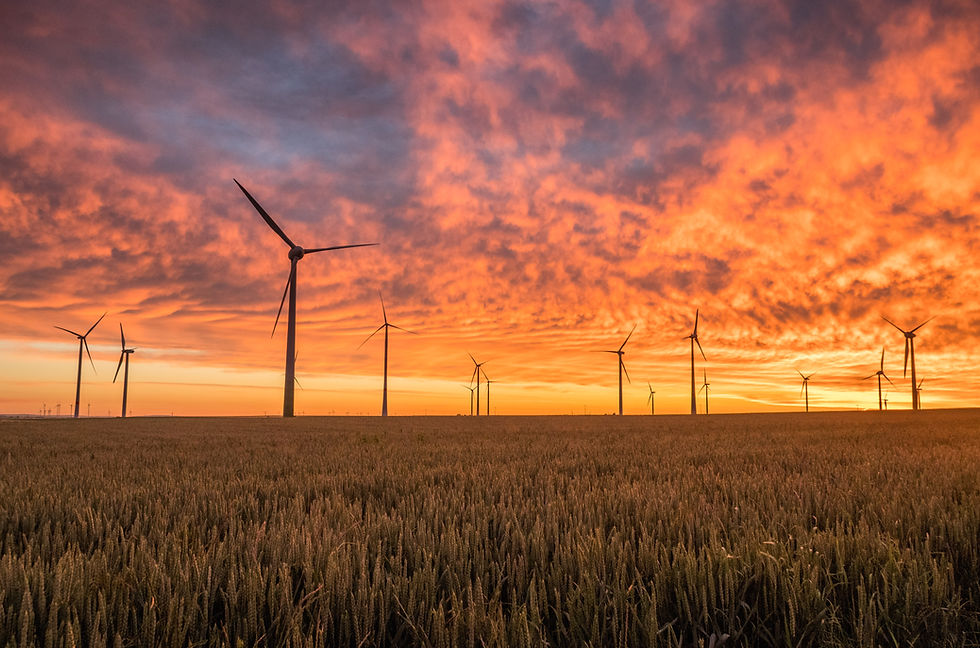What is Clean Energy and Why is it Important?
- Sejal Bilwar

- Aug 8, 2022
- 2 min read
Written By: Anna Lucas

The term “clean energy” seems to be everywhere lately. You see it in the news while the anchors drone on about Global warming, you see it in commercials when people are trying to sell you solar panels, you see it on little stickers on your household appliances, but what does it mean, and why is it important?
Although there are many sources we can get energy from, the main source used is fossil fuels such as coal or gas. Fossil fuels currently support 80% of the world’s energy and have been powering economies for over 150 years. While there are pros to the use of fossil fuels, such as our deep understanding of how they work in regards to powering our communities, their reliability, and their efficiency; these pros, unfortunately, do not outweigh the lengthy list of cons.
Such cons include how when fossil fuels are burned, they release nitrogen oxides into the atmosphere, which contribute to the formation of smog and acid rain, or how fossil fuels aren’t renewable and if we continue to use them at the rate at which we currently are, then all fossil fuels will be depleted no later than 2060. Because of these downsides and potential dangers of the continued use of fossil fuels, use of them needs to be discontinued or cut down drastically.
But, the Earth also needs energy, and so the concept of clean energy was born. Clean or renewable energy, is a type of energy that is collected from renewable resources that are naturally replenished on a human timescale. Some examples of these renewable resources are sunlight, wind, rain, tides, waves, water, and geothermal heat. These types of energies are then collected using panels, mills, power plants, etc. and converted into the type of energy we use today.
But if using fossil fuels is causing such a big issue, and clean energy is already used and studied, then why aren’t they used more widely, or have even replaced fossil fuels by now? Currently, despite the EU promising to go carbon-neutral by 2030 and countries like the U.S. and Sweden aiming for 2050, there have been no substantial moves by any country or alliance in the past few years to achieve these goals. This is likely because it would be extremely expensive for any country, but especially those as large as the U.S., to convert their petroleum-reliant economies to become carbon-neutral in such a short amount of time. These countries and alliances refusing to make moves towards their goals is only exacerbating the problem of the energy crisis.







Comments